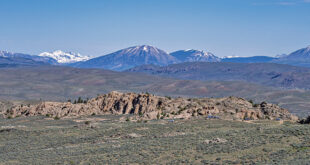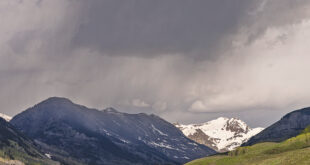My friend and teacher died today.
It is Friday and Lee Harrison Ervin made the crossing after a relatively short bout with cancer in New Mexico. One of the most, if not the most, intelligent and articulate writers to come from this valley, Lee H guided this community for decades through page 2 of the Pilot and the Chronicle & Pilot. His words could consistently touch a heart and a soul for people who made the choice to live in this place when it was not always an easy place to live. He always stood up for the underdog. He hated disingenuous politicians. He tried to keep in touch with a spiritual side. He was not afraid. He was always searching and learning. He was caring, odd and funny. He was honest and charismatic. He was smart and insightful. He could drink (too much) and smoke (too much) and eat onions all day long. He told me several times he had had a vision that he would die when he was 84. He reconfirmed that vision the last time I saw him. Lee was 70. He was not always right.
So after hearing the final news on Friday I went and covered a meeting because that’s what newspaper people do and Lee would understand—or he would have headed straight to Kochevar’s for a beer, which is probably what I should have done. But I went to work and then back to the office. I picked up one of the books containing old editions of the paper and wanted to see if I could find a series of pieces Lee wrote, titled “Crossings.” I pulled out the early 1994 book and randomly opened it up. I flipped to the first editorial of his, “An open letter to Commissioner Santarelli.” That was definitely not what I was looking for.
I flipped backward a week and realized Lee was rolling an American Spirit and helping me out on a Friday afternoon. It wasn’t “Crossings” but it contained a story that might be relevant because his attitude was that everything was relevant but you might not know why. Here is an excerpt from his February 25, 1994 piece:
I met with a Navajo medicine man last spring. He was old, frail, thin and not too well. He was by all appearances a sick medicine man.
When I came into his home, he had a little portable, battery-powered radio going. It was the Navajo station, but the predominant sound coming from the little machine was static. Charlie turned the little portable off and we talked through an interpreter for almost two hours. Mainly he talked, the interpreter interpreted and I listened. My ex-wife had told me that Indians don’t like a lot of questions.
As he talked, telling old stories, he changed. He was no longer like a frightened doe. His eyes brightened and he seemed to grow stronger, healthier, vital again, gaining a life force from the stories. I was no longer in a tract house on the Navaho reservation; I was in a cathedral.
Before I left, Charlie asked if I would say a prayer. This is a turnabout. I’d come here seeking some answers, seeking some healing, and now I was asked to say a prayer.
Hmm, maybe this is the way it works. Maybe we heal by helping others. But a prayer and a public one at that, I had never been asked to pray before.
Four of us were in the room. We stood up and joined hands. I looked to each person in the circle, then said that we were going to pray into the Field of Plenty. We were going to give thanks in our prayer for what was yet to come, for what was next. With that introduction, I said a prayer for Charlie. Thanking God, thanking the spirits for Charlie’s recovery and return to good health.
The prayer got translated. All in all, I thought I did a pretty good job with the prayers, being that it was my first time out and all. But when I looked up, Charlie seemed a tad disappointed. Later I was told that that the prayer was okay, but it was way too short. Navajos sometimes pray for days.
Beginning the practice of prayer is one thing; sustaining the practice another. We all need prayers. Long prayers.
As we left, Charlie switched back on his radio. Soft static filled the room.
When Henrietta cut through the static on her radio show Sunday morning, the first thing she asked was just how we could see the flying saucers around Mt. Crested Butte. Easy, it turns out, just get into an altered state. An altered state, explained the psychic, was nothing but a light meditative state.
Okay.
I know a guy who, after taking the waters at Ojo Caliente and lying quiet for 20 minutes on the wrap table, had two numbers come to him. Eight and four. Eighty-four.
“I wasn’t thinking about anything at that point,” he said. “For just a moment I wasn’t even thinking about thinking.”
A light meditative state?
“Well,” I asked, “what did you make of it? What did the numbers mean?”
“That’s the funny thing,” he said. “I knew what the numbers meant right away. I knew 84 was the age I would die.”
“You knew that?”
“Yep, I know I might die a few deaths in between but I got a clear message that this would be the final exit.”
“How does it feel knowing when you are going to die?”
“I kind of like it. It gives me time to practice.”
And the piece ended with a “to be continued…”
I took many rides with Lee H. We rode motorcycles down to Mexico and back. We rode mountain bikes to Marble and Crystal (and basically walked back with flat tires). We rode horses out Brush Creek and up Whetstone. We rode an afternoon victory over his high school son Dooley and his friends on the basketball court at the Center for the Arts because, after all, Lee was originally from Indiana and that meant he could play hoops. His main tactic was to throw his elbows wildly and make fun of anyone who called him for a foul. It worked.
We rode psychedelic waves with the help of both natural and chemical assistance. But the ride within the ride was always a questioning one. What was on the other side? What happened in the next dimension? What was this all about?
Maybe he has now found the answer. And, knowing Lee, maybe he was not wrong. Maybe there is something on the other side. And maybe Friday was not the “final exit” for Lee Harrison Ervin. Maybe in 2031, when he’d be 84, there will be a new answer. Knowing Lee, it wouldn’t surprise me.
So, thanks for leading me to this 1994 piece of writing. You made it easy. And thanks for reminding through that piece to pray and practice a bit more often.
Thank you for being my friend.
Thank you for being my teacher.
…to be continued.
—Mark Reaman
 The Crested Butte News Serving the Gunnison Valley since 1999
The Crested Butte News Serving the Gunnison Valley since 1999





